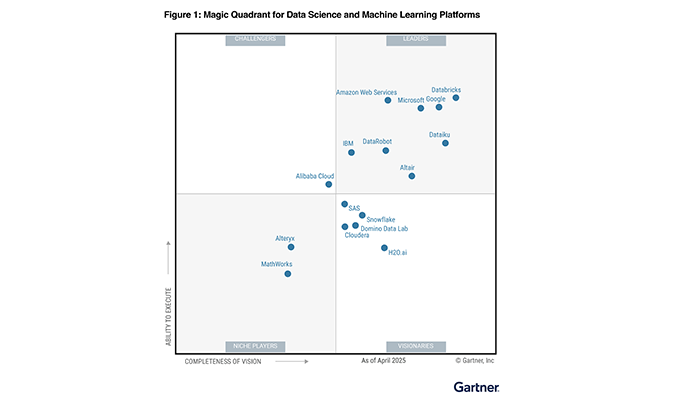
Data Transformation
Analytics projects begin with data preparation. Teams must access many sources of data to solve complex problems, including data from third parties. Raw data is rarely clean or fully accurate – as such, teams must transform it so it’s useful in machine learning applications and helps users make good business decisions. Altair data preparation software connects seamlessly to virtually every data source and can handle any data format, from PDFs to spreadsheets to big data repositories. Use Altair’s intuitive workflows, automation functions, and pre-built data models to generate clean, governed, and trusted datasets.
Ease of Use
It’s no secret that high quality data is critical to every data analytics project. Business users and people with limited data science training can begin using Altair’s no-code, visual interface in just minutes. Additionally, users can connect to all their data sources and cleanse, blend, and transform difficult, incomplete, and/or “dirty” data into trusted and accurate datasets within a governed environment.
Automate
Organizations must operationalize large amounts of disparate data to solve complex problems. To keep up with demand, teams must be able to automate data transformation tasks and standardize report formats quickly and easily. Altair’s data preparation tools make it easy to store and retrieve reports quickly and integrate data transformation workflows with enterprise content management (ECM) and robotic processing automation (RPA) platforms.
Collaborate
Data confined within silos hampers decision-making and causes inefficiencies. Our collaborative data transformation and machine learning tools empower business and data analytics teams to work together in secure, governed environments. Sharing accurate and trusted data streamlines cross-functional analysis and increases the quality and diversity of analytics deliverables.
Experience no-code, automated data transformation.
Request Free Trial
Turn Difficult Data into Trusted, Accurate Data
Altair offers the fastest, easiest way to extract and cleanse data from any source. Our visual workflows don’t require coding and let users collaborate as they transform difficult data like PDFs, complex spreadsheets, HTML, text files, and cloud data into rows and columns. Altair technology lets users automate preparation tasks so they can increase their results’ accuracy and quality and deliver trusted datasets to the right people in no time.

Enterprise Level Data Preparation, Data Transformation, and Automation
Altair’s desktop, server, and cloud-based options allow employees to build, combine, prepare, store, share, and retrieve reports and data models in a collaborative environment. There, users can automate advanced data preparation, model/workspace development, and workflow processes to reduce complexity and minimize errors.
Altair fits perfectly with robotic process automation (RPA) initiatives by automating repeatable data transformation processes with easy-to-create models and workspaces that ensure standardized data formats. Users can implement our scheduling and file-on-arrival capabilities using application programming interfaces (API) and manifest file functions without writing any code.
Altair tools can manage the storage, indexing, search, and retrieval of core reports and text-based files by integrating with popular content management systems (CMS), and users can add Altair functionality to existing CMSs through our API. Altair solutions are scalable and support failover, alerting, and related capabilities.

Democratize Decision Making
Major financial services, manufacturing, government, education, and retail organizations use Altair technology to extract data locked in mainframe reports and other difficult-to-access sources so they can efficiently analyze financial, customer service, production, and warranty data.
Altair’s innovative analytics approach starts with data preparation that centralizes and governs curated and audited datasets. Altair solutions automatically log all manual and automated data changes to ensure data remains trustworthy. With Altair solutions, users can create an unmatched collaborative analytics workflow by enabling people with different skills and knowledge use the same accurate datasets to make thoughtful decisions.

Request a Trial
Experience the difference of Altair® RapidMiner®, our data analytics and AI platform. Fully functional, limited term licenses are available for you to explore how Altair can transform your business.
With Altair's data analytics software users can extract and prepare data, build predictive models and scalable apps, and more.
Featured Resources

Altair Monarch: Enterprise-Class Data Transformation
Altair Monarch is a comprehensive, self-service data transformation and process automation solution. It connects directly to a wide range of structured and semi-structured data sources, including PDFs, text, complex spreadsheets, JSON, XML, big data sources, relational databases, and many others. Business users and analysts can extract, cleanse, and transform data into consistent, governed, and secure rows and columns without specialized knowledge or training, and without writing any code. The platform includes more than 80 pre-built data preparation functions which makes it easy to build new error-free workflows in minutes.
Experience no-code, automated data transformation: Try Altair Monarch today, for free.

Guide to Self-Service Data Preparation
Whether you call it data preparation, mining, extracting, cleaning, joining, blending, or masking, it's all data transformation. This guide will help you assess your requirements and develop an implementation plan to increase efficiency and reduce errors in your data transformation processes. Experience no-code, automated data transformation: Try Altair Monarch today, for free.

Advance Your RPA Initiatives
Reduce hard costs, save time, and improve output quality in financial reporting. Robotic Process Automation (RPA) is the use of robotic software to automate time-consuming, high-volume, repetitive back-office activities. RPA is driving the need to streamline business activities that lower costs and eliminate human error. Altair fits perfectly with RPA initiatives by automating repeatable data transformation processes using models that standardize report formats designed to meet end user and regulatory requirements.

Streamline Audit Processes with Self-Service Data Preparation
Auditors are under significant pressure to keep expenditures down whether they work for an external audit firm or are part of an internal audit team. Achieving cost-effective audits requires organizations to do more with less - while maintaining or increasing audit quality. To succeed auditors not only need the right expertise and process but also the right data analytics tools.





